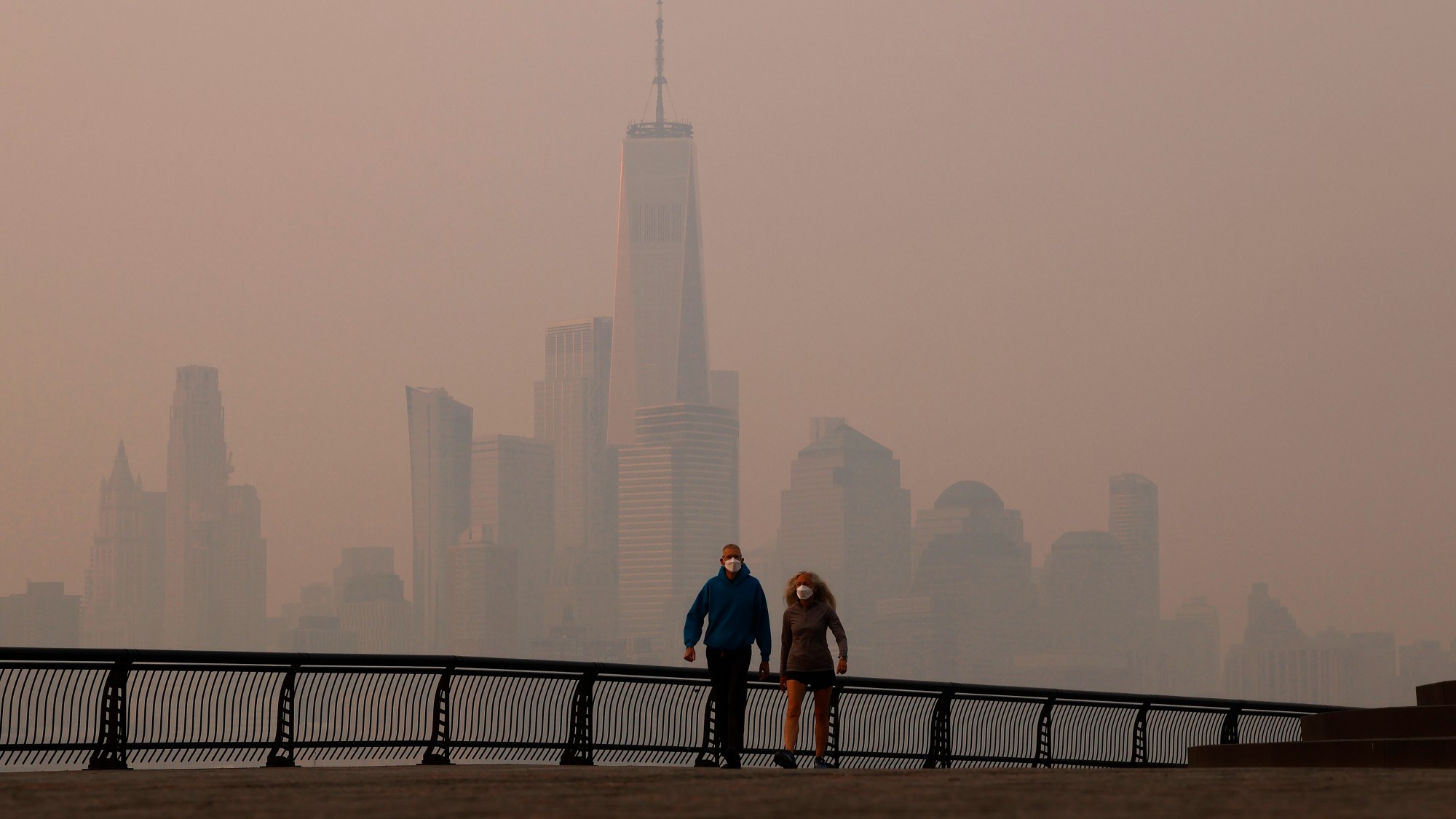How air pollution affects the brain
Breathing fresh air is becoming more rare


A free daily email with the biggest news stories of the day – and the best features from TheWeek.com
You are now subscribed
Your newsletter sign-up was successful
Air pollution is considered by some to be the "greatest external threat" to life expectancy, and pollution levels only continue to increase as climate change worsens. While breathing in particulates can be bad for the heart and lungs, studies have consistently shown that repeated exposure to pollutants also has substantial effects on the brain, both literally and psychologically — even in seemingly limited quantities.
How does air pollution affect the brain physically?
Air pollution can come from a number of sources, including the burning of fossil fuels, dust and wildfires. One in four Americans is exposed to unhealthy air quality each year, and that number is only expected to go up. Poor air quality has been associated with heart arrhythmia, breathing problems like asthma, and in severe cases, an increased risk of cancer. But scientists have also found that regular inhalation of particulate matter can have a monumental impact on the brain.
Air pollution increases a person's risk of developing dementia, said a 2023 study published in the journal JAMA Internal Medicine. The most at-risk areas to live in are those with pollution from agriculture and wildfires. "It really makes a lot of sense, mostly because of the fact that we're looking at impacts on the brain, and agriculture we know is using a lot of pesticides," Sara Dubowsky Adar, who worked on the study, said to CNN. "Tiny pollution particles could be getting into the brain through the nose and causing neuronal cell death that's connected to dementia," CNN said. "It's also possible that particle pollution is modifying inflammatory proteins that act on the brain."
The Week
Escape your echo chamber. Get the facts behind the news, plus analysis from multiple perspectives.

Sign up for The Week's Free Newsletters
From our morning news briefing to a weekly Good News Newsletter, get the best of The Week delivered directly to your inbox.
From our morning news briefing to a weekly Good News Newsletter, get the best of The Week delivered directly to your inbox.
Even living in areas with a "safe" level of pollution can have negative health repercussions. A 2023 study published in the journal Environment International said that "outdoor ambient air pollution during childhood is linked to longitudinal changes in brain network connectivity development." In developing children and adolescents, this can lead to an "increased risk for cognitive and emotional problems later in life," Megan M. Herting, an associate professor of population and public health sciences at the Keck School of Medicine and the study's senior author, said in a press release.
How does air pollution affect mental health?
Exposure to air pollution can lead to increased cases of depression, anxiety and psychosis, said a 2023 study published in the British Journal of Psychiatry. The research showed "emerging evidence of associations between poor air quality, both indoors and outdoors, and poor mental health more generally, as well as specific mental disorders." In addition, "pre-existing long-term conditions appear to deteriorate, requiring more healthcare."
High levels of air pollution can also contribute to a plethora of less obvious issues, including "poor housing, over-crowding, poverty, a lack of green spaces, as well as individual social and psychological vulnerabilities such as lack of access to support, carers or safe spaces," said the University of Oxford. As climate change increases pollution and more places become uninhabitable, people will be forced to relocate — and the risk of losing housing can be a large source of stress and detriment to mental health. "Air pollution and mental health are both major challenges that the world must grapple with now and for years to come," study lead author Kam Bhui said in the Oxford statement. "This makes this area of research a vital public health priority."
A free daily email with the biggest news stories of the day – and the best features from TheWeek.com
Devika Rao has worked as a staff writer at The Week since 2022, covering science, the environment, climate and business. She previously worked as a policy associate for a nonprofit organization advocating for environmental action from a business perspective.
